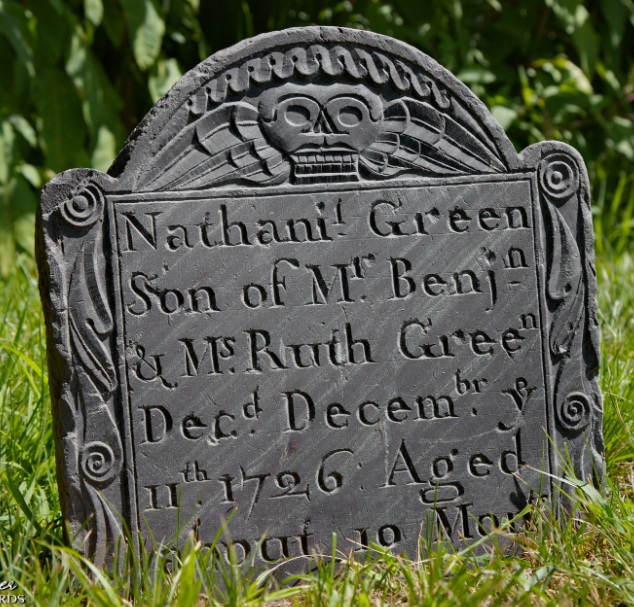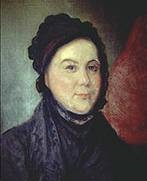War Debt
Actually, at the end of the Revolutionary War, the infant country was $25 million in debt to other countries and to wealthy persons who loaned much of the money that financed the War (when the government assumed all the debts it came to 79 million dollars, but assumption is another day). The Dutch, now Holland, but then called the Republic of Batavia loaned Robert Morris, "The Financier of the Revolutionary War," almost $13 million. The balance of the money was loaned to the United States by other countries such as France and Spain, all enemies of England. The Continental Congress also floated promissory notes, promising to pay the buyer face value at the end of the War. Alexander Hamilton, First Secretary Treasurer of the United States, immediately went to Congress and urged that the War notes be paid. (Of course his family, the Schuylers, the Van Rensselears, owned "the Lions' Share" of them and had bought them for pennies on the dollar.
Robert Morris
Robert Morris was bound by his signature to absorb some of the debt that had been borrowed in his name which became a very large drain on his quite large wealth he had either inherited or acquired through his investments and deals.

During the later years of his public life, Morris speculated wildly, often on overextended credit, in lands in the West and at the site of Washington, DC. To compound his difficulties, in 1794 he began constructing on Philadelphia's Chestnut Street a mansion designed by Maj. Pierre Charles L'Enfant. Not long thereafter, Morris attempted to escape creditors by retreating to The Hills, the country estate along the Schuylkill River on the edge of Philadelphia that he had acquired in 1770.
Arrested at the behest of creditors in 1798 and forced to abandon completion of the mansion, thereafter known in its unfinished state as "Morris' Folly," Morris was thrown into the Philadelphia debtor's prison, where he was nevertheless well treated. By the time he was released in 1801, under a federal bankruptcy law, however, his property and fortune had vanished, his health had deteriorated, and his spirit had been broken. He lingered on in poverty and obscurity, living in a simple Philadelphia home on an annuity obtained for his wife by fellow-signer Governor Morris.
Robert Morris died in 1806 in his 73d year and was buried in the yard of Christ Church.
General Nathanael Greene
The accomplishments of Greene are almost too numerous to catalogue in a small article, however two essential assignments given him were decisive in the victorious outcome of the American Revolution: the assignment as Quartermaster General of the American Forces, and the assignment of Command of the Southern Campaign culminating in the defeat of Cornwallis at Yorktown.

Taking on the task of Quartermaster-General of the Army was daunting. Greene himself was not keen on the idea saying, "No one ever heard of a quartermaster in history." He finally consented to the assignment but insisted that he still retain some command and participate in battle. However, in spite of his reluctance to take the assignment he understood its vital importance to the cause and immersed himself to successfully carry out the task. The American forces were under funded, under supplied, and had little if any system of transportation of supplies. Greene's predecessor had not done well in allocating the scarce resources effectively. However Nathanael Greene got to work and turned the situation around. Sometimes he even spent some of his own money, and at one time guaranteed personally expenses that would cost him all of his holdings in Rhode Island, and the money and lands given him by the state of North Carolina at the end of the Revolutionary War.
After liquidating his assets and losing all of his fortune in Rhode Island, Nathanael Greene went to live at Mulberry Grove, an estate outside Savannah, a gift of the State of Georgia in the fall of 1785. In less than a year, at the age of forty-five he was dead. He is said to have died of sunstroke and heat exhaustion. It was June 19th, 1786. No one will ever know what he might have become in the
years ahead, but Thomas Jefferson was certain when he wrote of Greene, "Second to no one in enterprise, in resource, in sound judgment, promptitude of decision, and every other military talent. "
However, the lessons he learned as Quartermaster-General would benefit him as a leader when he assumed command of the Southern Campaign. Allocation and distribution of scarce resources, transportation and mobility, as well as the crucial aspects of setting up and maintaining supply lines, would be lessons that he carried with him to the South. His strategy would evolve into a comprehensive plan to conserve his troops and supply lines, striking when essential while at the same time exhausting the enemy's troops and harassing and overextending the British supply lines. This new strategy was one that both he and George Washington came to agree upon, or perhaps developed together. Once, when Washington placed Greene in charge while he went to attend a conference he said: "In my absence the command of the army devolves upon you. I have such entire confidence in your prudence and abilities that I leave conduct of it to your discretion, with only one observation: that with our present prospects it is not our business to seek action, nor to accept one, except upon advantageous terms." Perhaps, in this short statement Washington with his "one observation" reveals the key to the Revolutionary Army strategy - - a strategy that Major Greene implemented with a religious devotion in the South.
After the war, the States of Georgia presented Nathanael and Caty a plantation, Mulberry Grove, as a reward for having "Saved the South".
But Congress was wholly without funds and could not reimburse him. To make good his promise to pay the merchants
that furnished the supplies to his Army, he borrowed money from his wealthy friends, including the Marquis de LaFayette, Robert Morris
and Jeremiah Wadsworth, his former business partner. He told Caty "I tremble at my own situation when I think of the enormous sums I owe".
After liquidating his assets and losing all of his fortune in Rhode Island, Nathanael Greene went to live at Mulberry Grove,
an estate outside Savannah, a gift of the State of Georgia in the fall of 1785. In less than a year, at the age of forty-five he
was dead. He is said to have died of sunstroke and heat exhaustion on June 19th, 1786.

It was not until his sudden death in 1786, from sunstroke, that Caty,
 his wife, realized just how serious the situation was. She was a young widow of 32, with five children.
his wife, realized just how serious the situation was. She was a young widow of 32, with five children.
Caty was forced to borrow money for living expenses from Wadsworth. Her household furniture was given to creditors, she sold her carriage to fund a trip to Hartford to meet with Wadsworth than a Representative from Connecticut.
There were unconfirmed reports made to Wadsworth that Caty was having an affair with a married man. He became very possessive and reportedly had several jealous outbursts. He accused her of having an affair with her plantation manager, Phineas Miller, Caty denied the relationship, but since she later married Phineas she was not entirely truthful. Nevertheless, he continued to loan her the monies she desperately required.
On April 27th, 1792, President George Washington signed the act to repay monies owed by the new government, undoubtedly one of the more enjoyable events of his Presidency. Alexander Hamilton, as Secretary of the Treasury, signed a government check for $23,500 and a promissory note for another $23,500 payable by Congress within three years. We do not know who brought her the good news, but we know she had to have been elated. She wrote her Georgia lawyer, Nathaneal Pendleton, "I can tell you my dear friend, that I feel as saucy as you please - - not only because I am independent,but because I have gained a complete triumph over some of my friends who did not wish me success -- and others who doubted my judgement in managing the business - - and constantly tormented me to death to give up my obstinacy as it was called. They are now as mute as mice - not a word dare they utter. a how sweet is revenge."
She married Phineas Miller in 1796. He had been with her for a number of years, first as tutor to her children then as manager of the plantation.
Phineas was born in Middlefield, Connecticut and was educated at Yale. They probably would have married sooner, but in the 19th century, a widow would lose her widow's benefits if she remarried. Had she done so prior to winning her petition to Congress, she would have lost all that was owed to General Greene.


While operating Mulberry Grove, she hired another tutor, Eli Whitney. While in her employ he invented the Cotton Gin which was
to revolutionize the cotton industry. Phineas and Eli went into business manufacturing the machines. It is believed that Caty and
Phineas invested money in the new cotton gin. However, it appears they over invested in the venture and shortly thereafter, Caty was forced to sell Mulberry Grove to pay debts.
|